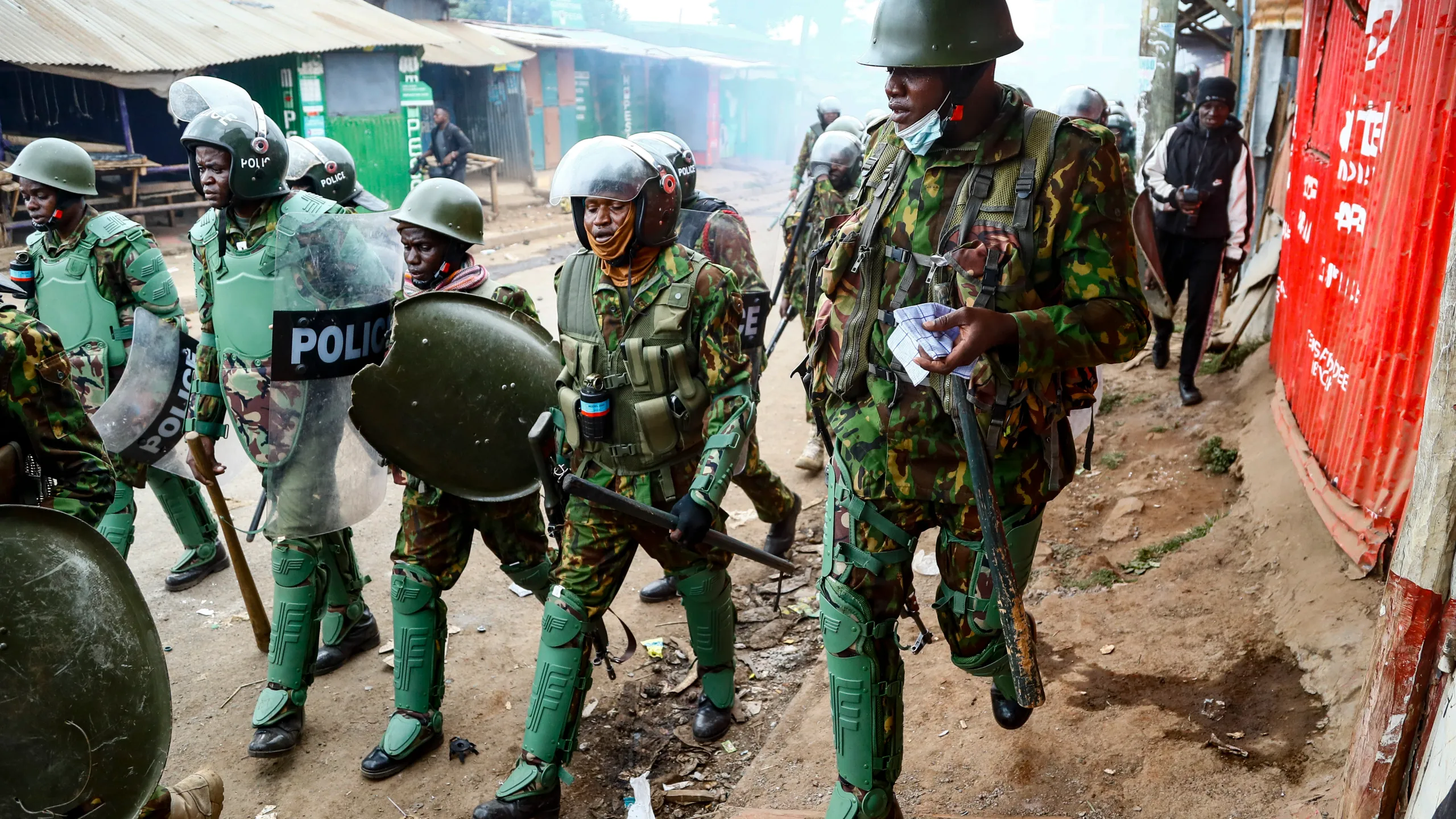October 10, 2023
NAIROBI, Kenya | The High Court of Kenya has issued an order to halt the planned deployment of 1,000 police officers to Haiti, citing concerns over due process and constitutional adherence.
Justice Chacha Mwita issued the order in response to a case filed by Ekuru Aukot, the leader of the Thirdway Alliance Party, along with the party itself and its chairperson, Mururu Waweru. They have taken legal action against several prominent figures, including President William Ruto, Interior CS Professor Kithure Kindiki, Police IG Japhet Koome, National Assembly Speaker Justin Muturi, and the National Security Council.
The controversy arose after Kenya offered to send police officers to Haiti in July 2023, with the United Nations (UN) Security Council granting approval for the deployment on October 10. President Ruto welcomed this move in a televised address. However, the petitioners argue that proper procedures were not followed.
The petitioners claim that there was no Cabinet meeting or resolution to demonstrate that due process had been observed in making this decision. They express concern that the deployment could proceed without adherence to the law and the constitution, including the absence of public participation.
Public participation is a crucial aspect of decision-making, and the petitioners argue that it should have occurred before Kenya’s request was submitted to the Security Council. They contend that any subsequent public participation would merely be for show.
Furthermore, the deployment is being questioned on economic grounds, as it is seen as not promoting efficient, effective, and economical use of resources. This is a pressing concern given the inflation and high cost of living challenges currently facing Kenya.
Aukot’s affidavit alleges that President Ruto unilaterally entered into an agreement with the US and UN for the deployment of Kenyan officers, bypassing public participation. He cites Article 243 (3) of the Kenyan constitution, which specifies that the National Police Service is a national service and should function within Kenya.
Aukot argues that Section 6 of the constitution provides the only provision for deploying police officers outside the country, and this can only occur in defense of Kenya or during a state of emergency. He emphasizes that Haiti is neither at war nor in a state of emergency, making this deployment legally questionable.
The petitioners also point out that the past deployment of armed forces by the US and France to Haiti had unfortunate consequences, raising concerns about the safety of Kenyan officers.
Aukot questions the willingness of the US to provide Kenya with funds amounting to Sh14.7 billion to support the mission while not deploying its own security forces. He suggests that Kenya’s resources could be better utilized to address domestic security challenges, such as the recent violence against the Kikuyu community in Lamu County.
Lastly, the petitioners argue that there is no law or ratified treaty through parliament authorizing the deployment of Kenyan police officers to Haiti or any other location.
The court’s decision to halt the deployment has opened a new chapter in the ongoing debate over Kenya’s international commitments and priorities, with legal and constitutional concerns at the forefront of the discussion. The outcome of this case will undoubtedly have significant implications for Kenya’s role in global peacekeeping efforts.
















